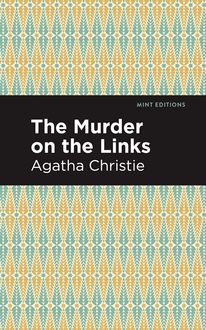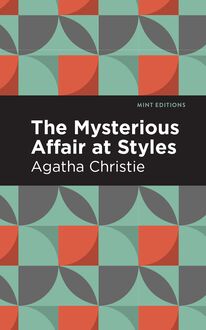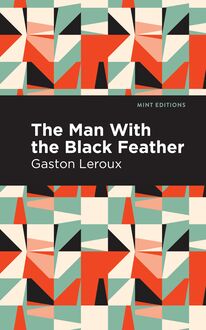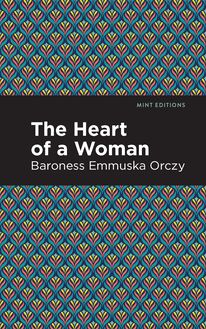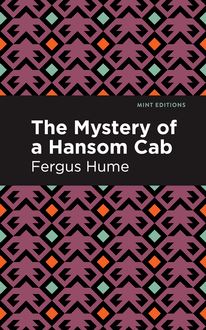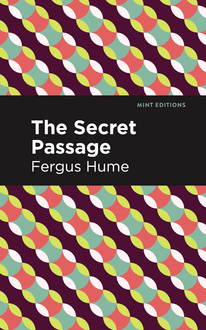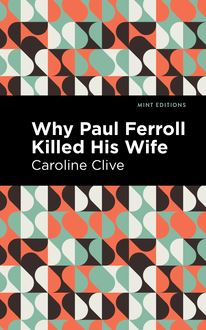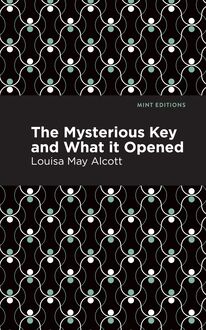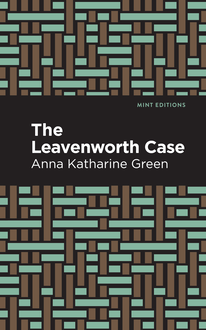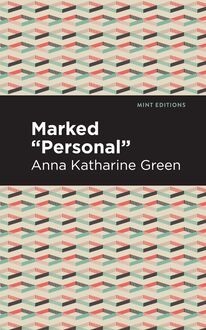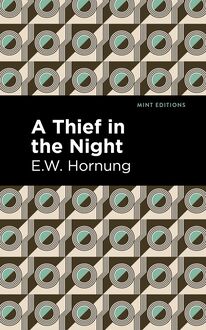-
 Univers
Univers
-
 Ebooks
Ebooks
-
 Livres audio
Livres audio
-
 Presse
Presse
-
 Podcasts
Podcasts
-
 BD
BD
-
 Documents
Documents
-
- Cours
- Révisions
- Ressources pédagogiques
- Sciences de l’éducation
- Manuels scolaires
- Langues
- Travaux de classe
- Annales de BEP
- Etudes supérieures
- Maternelle et primaire
- Fiches de lecture
- Orientation scolaire
- Méthodologie
- Corrigés de devoir
- Annales d’examens et concours
- Annales du bac
- Annales du brevet
- Rapports de stage
La lecture à portée de main
Vous pourrez modifier la taille du texte de cet ouvrage
Découvre YouScribe en t'inscrivant gratuitement
Je m'inscrisDécouvre YouScribe en t'inscrivant gratuitement
Je m'inscrisEn savoir plus
Vous pourrez modifier la taille du texte de cet ouvrage
En savoir plus

Description
The Red House Mystery (1922) is a detective novel by A.A. Milne. Known more for his series of Winnie-the-Pooh stories and poems for children, Milne also wrote novels and plays for adults, including this successful whodunnit. The Red House Mystery, Milne’s only detective novel, was highly successful upon publication and is noted for its use of an amateur sleuth as well as its intricate, puzzle-like plot. Despite earning the ire of Raymond Chandler, Milne’s novel was reprinted in the U.S. and in Britain numerous times.
At his house in the English countryside, Mark Ablett hosts a small party of diverse guests including a widow and her young daughter, a retired military officer, an actress, and a young socialite named Bill Beverley. During this party, Mark’s brother Robert unexpectedly returns home from Australia, where he has been for some time. Shortly after this long-awaited homecoming, Robert is found dead of a gunshot wound to the head, and, amidst the chaos, Mark suddenly disappears. Having arrived late to the party, Tony Gillingham, with the help of his friend Bill Beverley, endeavors to investigate the mysterious events of the evening. Aided, or at least tolerated, by an uninterested police force, Gillingham does his best as an amateur detective to gather evidence leading not only to the identity of Robert’s murderer, but to the discovery of Mark’s whereabouts. The Red House Mystery is an innovative whodunnit filled with humorous quips, twists and turns, and a puzzle with which even the most seasoned reader of mysteries will struggle.
With a beautifully designed cover and professionally typeset manuscript, this edition of A.A. Milne’s The Red House Mystery is a classic of British detective fiction reimagined for modern readers.
Sujets
Informations
| Publié par | Mint Editions |
| Date de parution | 23 février 2021 |
| Nombre de lectures | 3 |
| EAN13 | 9781513276687 |
| Langue | English |
| Poids de l'ouvrage | 1 Mo |
Informations légales : prix de location à la page 0,0500€. Cette information est donnée uniquement à titre indicatif conformément à la législation en vigueur.
Extrait
The Red House Mystery
A.A. Milne
The Red House Mystery was first published in 1922.
This edition published by Mint Editions 2021.
ISBN 9781513271682 | E-ISBN 9781513276687
Published by Mint Editions®
minteditionbooks.com
Publishing Director: Jennifer Newens
Design & Production: Rachel Lopez Metzger
Project Manager: Micaela Clark
Typesetting: Westchester Publishing Services
C ONTENTS I. M RS . S TEVENS IS F RIGHTENED II. M R . G ILLINGHAM G ETS O UT AT THE W RONG S TATION III. T WO M EN AND A B ODY IV. T HE B ROTHER FROM A USTRALIA V. M R . G ILLINGHAM C HOOSES A N EW P ROFESSION VI. O UTSIDE OR I NSIDE ? VII. P ORTRAIT OF A G ENTLEMAN VIII. “D O Y OU F OLLOW M E , W ATSON ?” IX. P OSSIBILITIES OF A C ROQUET S ET X. M R . G ILLINGHAM T ALKS N ONSENSE XI. T HE R EVEREND T HEODORE U SSHER XII. A S HADOW ON THE W ALL XIII. T HE O PEN W INDOW XIV. M R . B EVERLEY Q UALIFIES FOR THE S TAGE XV. M RS . N ORBURY C ONFIDES IN D EAR M R . G ILLINGHAM XVI. G ETTING R EADY FOR THE N IGHT XVII. M R . B EVERLEY T AKES THE W ATER XVIII. G UESS-WORK XIX. T HE I NQUEST XX. M R . B EVERLEY IS T ACTFUL XXI. C AYLEY’S A POLOGY XXII. M R . B EVERLEY M OVES O N
I
M RS . S TEVENS IS F RIGHTENED
In the drowsy heat of the summer afternoon the Red House was taking its siesta. There was a lazy murmur of bees in the flower-borders, a gentle cooing of pigeons in the tops of the elms. From distant lawns came the whir of a mowing-machine, that most restful of all country sounds; making ease the sweeter in that it is taken while others are working.
It was the hour when even those whose business it is to attend to the wants of others have a moment or two for themselves. In the housekeeper’s room Audrey Stevens, the pretty parlour-maid, re-trimmed her best hat, and talked idly to her aunt, the cook-housekeeper of Mr. Mark Ablett’s bachelor home.
“For Joe?” said Mrs. Stevens placidly, her eye on the hat. Audrey nodded. She took a pin from her mouth, found a place in the hat for it, and said, “He likes a bit of pink.”
“I don’t say I mind a bit of pink myself,” said her aunt. “Joe Turner isn’t the only one.”
“It isn’t everybody’s colour,” said Audrey, holding the hat out at arm’s length, and regarding it thoughtfully. “Stylish, isn’t it?”
“Oh, it’ll suit you all right, and it would have suited me at your age. A bit too dressy for me now, though wearing better than some other people, I daresay. I was never the one to pretend to be what I wasn’t. If I’m fifty-five, I’m fifty-five—that’s what I say.”
“Fifty-eight, isn’t it, auntie?”
“I was just giving that as an example,” said Mrs. Stevens with great dignity.
Audrey threaded a needle, held her hand out and looked at her nails critically for a moment, and then began to sew.
“Funny thing that about Mr. Mark’s brother. Fancy not seeing your brother for fifteen years.” She gave a self-conscious laugh and went on, “Wonder what I should do if I didn’t see Joe for fifteen years.”
“As I told you all this morning,” said her aunt, “I’ve been here five years, and never heard of a brother. I could say that before everybody if I was going to die to-morrow. There’s been no brother here while I’ve been here.”
“You could have knocked me down with a feather when he spoke about him at breakfast this morning. I didn’t hear what went before, naturally, but they was all talking about the brother when I went in—now what was it I went in for—hot milk, was it, or toast?—well, they was all talking, and Mr. Mark turns to me, and says—you know his way—‘Stevens,’ he says, ‘my brother is coming to see me this afternoon; I’m expecting him about three,’ he says. ‘Show him into the office,’ he says, just like that. ‘Yes, sir,’ I says quite quietly, but I was never so surprised in my life, not knowing he had a brother. ‘My brother from Australia,’ he says—there, I’d forgotten that. From Australia.”
“Well, he may have been in Australia,” said Mrs. Stevens, judicially; “I can’t say for that, not knowing the country; but what I do say is he’s never been here. Not while I’ve been here, and that’s five years.”
“Well, but, auntie, he hasn’t been here for fifteen years. I heard Mr. Mark telling Mr. Cayley. ‘Fifteen years,’ he says. Mr. Cayley having arst him when his brother was last in England. Mr. Cayley knew of him, I heard him telling Mr. Beverley, but didn’t know when he was last in England—see? So that’s why he arst Mr. Mark.”
“I’m not saying anything about fifteen years, Audrey. I can only speak for what I know, and that’s five years Whitsuntide. I can take my oath he’s not set foot in the house since five years Whitsuntide. And if he’s been in Australia, as you say, well, I daresay he’s had his reasons.”
“What reasons?” said Audrey lightly.
“Never mind what reasons. Being in the place of a mother to you, since your poor mother died, I say this, Audrey—when a gentleman goes to Australia, he has his reasons. And when he stays in Australia fifteen years, as Mr. Mark says, and as I know for myself for five years, he has his reasons. And a respectably brought-up girl doesn’t ask what reasons.”
“Got into trouble, I suppose,” said Audrey carelessly. “They were saying at breakfast he’d been a wild one. Debts. I’m glad Joe isn’t like that. He’s got fifteen pounds in the post-office savings’ bank. Did I tell you?”
But there was not to be any more talk of Joe Turner that afternoon. The ringing of a bell brought Audrey to her feet—no longer Audrey, but now Stevens. She arranged her cap in front of the glass.
“There, that’s the front door,” she said. “That’s him. ‘Show him into the office,’ said Mr. Mark. I suppose he doesn’t want the other ladies and gentlemen to see him. Well, they’re all out at their golf, anyhow— Wonder if he’s going to stay—P’raps he’s brought back a lot of gold from Australia—I might hear something about Australia, because if anybody can get gold there, then I don’t say but what Joe and I—”
“Now, now, get on, Audrey.”
“Just going, darling.” She went out.
To anyone who had just walked down the drive in the August sun, the open door of the Red House revealed a delightfully inviting hall, of which even the mere sight was cooling. It was a big low-roofed, oak-beamed place, with cream-washed walls and diamond-paned windows, blue-curtained. On the right and left were doors leading into other living-rooms, but on the side which faced you as you came in were windows again, looking on to a small grass court, and from open windows to open windows such air as there was played gently. The staircase went up in broad, low steps along the right-hand wall, and, turning to the left, led you along a gallery, which ran across the width of the hall, to your bedroom. That is, if you were going to stay the night. Mr. Robert Ablett’s intentions in this matter were as yet unknown.
As Audrey came across the hall she gave a little start as she saw Mr. Cayley suddenly, sitting unobtrusively in a seat beneath one of the front windows, reading. No reason why he shouldn’t be there; certainly a much cooler place than the golf-links on such a day; but somehow there was a deserted air about the house that afternoon, as if all the guests were outside, or—perhaps the wisest place of all—up in their bedrooms, sleeping. Mr. Cayley, the master’s cousin, was a surprise; and, having given a little exclamation as she came suddenly upon him, she blushed, and said, “Oh, I beg your pardon, sir, I didn’t see you at first,” and he looked up from his book and smiled at her. An attractive smile it was on that big ugly face. “Such a gentleman, Mr. Cayley,” she thought to herself as she went on, and wondered what the master would do without him. If this brother, for instance, had to be bundled back to Australia, it was Mr. Cayley who would do most of the bundling.
“So this is Mr. Robert,” said Audrey to herself, as she came in sight of the visitor.
She told her aunt afterwards that she would have known him anywhere for Mr. Mark’s brother, but she would have said that in any event. Actually she was surprised. Dapper little Mark, with his neat pointed beard and his carefully curled moustache; with his quick-darting eyes, always moving from one to the other of any company he was in, to register one more smile to his credit when he had said a good thing, one more expectant look when he was only waiting his turn to say it; he was a very different man from this rough-looking, ill-dressed colonial, staring at her so loweringly.
“I want to see Mr. Mark Ablett,” he growled. It sounded almost like a threat.
Audrey recovered herself and smiled reassuringly at him. She had a smile for everybody.
“Yes, sir. He is expecting you, if you will come this way.”
“Oh! So you know who I am, eh?”
“Mr. Robert Ablett?”
“Ay, that’s right. So he’s expecting me, eh? He’ll be glad to see me, eh?”
“If you will come this way, sir,” said Audrey primly.
She went to the second door on the left, and opened it.
“Mr. Robert Ab—” she began, and then broke off. The room was empty. She turned to the man behind her. “If you will sit down, sir, I will find the master. I know he’s in, because he told me that you were coming this afternoon.”
“Oh!” He looked round the room. “What d’you call this place, eh?”
“The office, sir.”
“The office?”
“The room where the master works, sir.”
“Works, eh? That’s new. Didn’t know he’d ever done a stroke of work in his life.”
“Where he writes , sir,” said Audrey, with dignity. The fact that Mr. Mark “wrote,” though nobody knew what, was a matter of pride in the housekeeper’s room.
“Not well-dressed enough for the drawing-room, eh?”
“I will tell the master you are here, sir,” said Audrey decisively.
She closed the door and left him there.
Well! Here was something to tell auntie! Her mind was busy at once, going over all the things which he had said to her and she had said to him—quiet-like. “Directly I saw him I said to myself—” Why, you could have knocked her over with a feather. Fea
-
 Univers
Univers
-
 Ebooks
Ebooks
-
 Livres audio
Livres audio
-
 Presse
Presse
-
 Podcasts
Podcasts
-
 BD
BD
-
 Documents
Documents
-
Jeunesse
-
Littérature
-
Ressources professionnelles
-
Santé et bien-être
-
Savoirs
-
Education
-
Loisirs et hobbies
-
Art, musique et cinéma
-
Actualité et débat de société
-
Jeunesse
-
Littérature
-
Ressources professionnelles
-
Santé et bien-être
-
Savoirs
-
Education
-
Loisirs et hobbies
-
Art, musique et cinéma
-
Actualité et débat de société
-
Actualités
-
Lifestyle
-
Presse jeunesse
-
Presse professionnelle
-
Pratique
-
Presse sportive
-
Presse internationale
-
Culture & Médias
-
Action et Aventures
-
Science-fiction et Fantasy
-
Société
-
Jeunesse
-
Littérature
-
Ressources professionnelles
-
Santé et bien-être
-
Savoirs
-
Education
-
Loisirs et hobbies
-
Art, musique et cinéma
-
Actualité et débat de société
- Cours
- Révisions
- Ressources pédagogiques
- Sciences de l’éducation
- Manuels scolaires
- Langues
- Travaux de classe
- Annales de BEP
- Etudes supérieures
- Maternelle et primaire
- Fiches de lecture
- Orientation scolaire
- Méthodologie
- Corrigés de devoir
- Annales d’examens et concours
- Annales du bac
- Annales du brevet
- Rapports de stage
